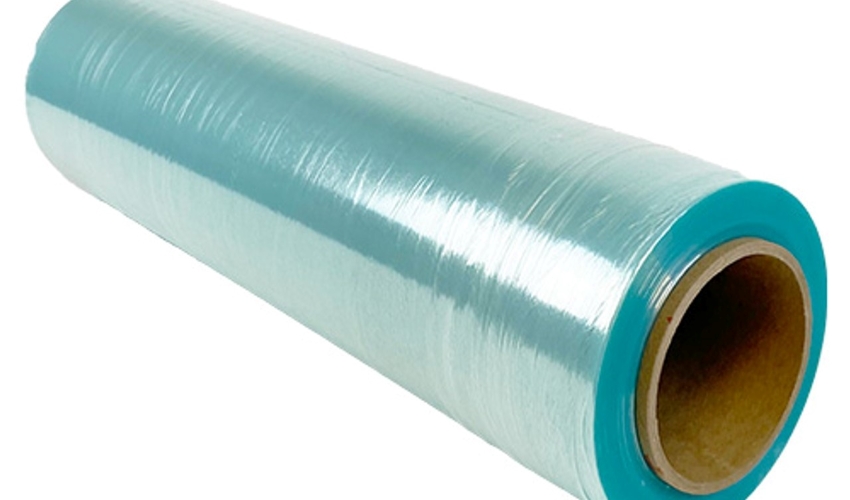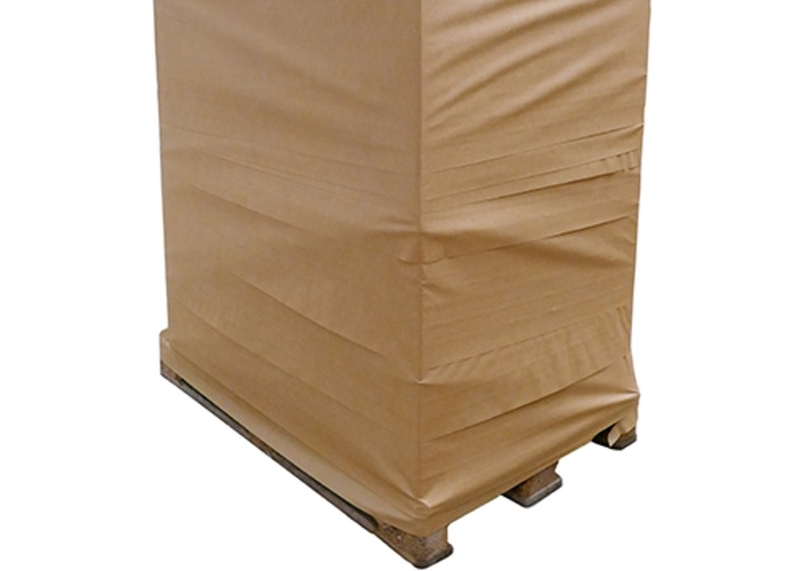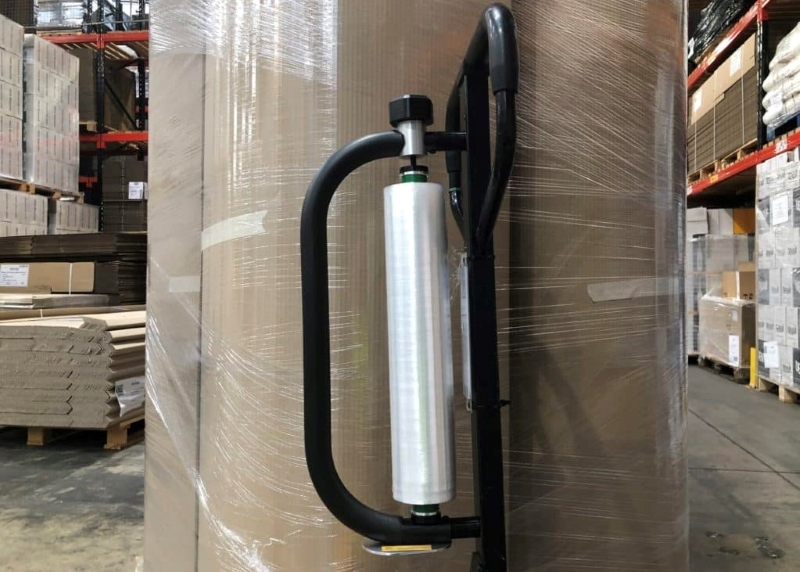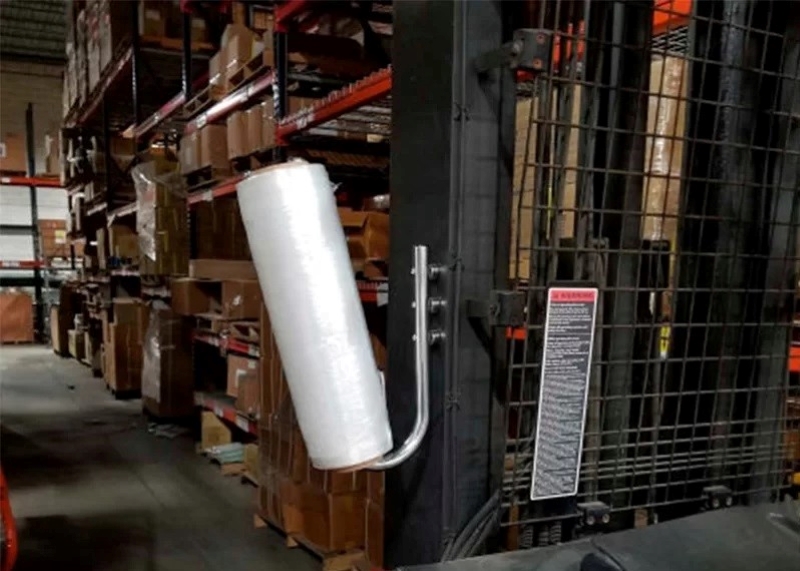
Sustainable packaging has become a critical focus in the modern supply chain, with companies increasingly prioritizing eco-friendly solutions. Recycled pallet wrap has emerged as a leading alternative to traditional plastic wraps, offering a more sustainable approach to securing goods during transport and storage. As businesses strive to reduce their environmental footprint, the demand for recycled pallet wrap has grown significantly. This eco-conscious option not only helps minimize waste but also supports the global shift away from single-use plastics. By adopting recycled pallet wrap, companies contribute to a circular economy while ensuring their packaging needs are met without compromising on performance. Recycled pallet wrap, made from post-consumer or marine plastics, offers strong stretch, adhesion, and eco-friendly benefits to reduce plastic waste.
Recycled pallet wrap is an innovative, eco-friendly packaging solution made from post-consumer recycled plastic materials. It is designed to serve as a sustainable alternative to traditional plastic wraps, offering many of the same benefits while reducing environmental impact.

Below are key aspects of recycled pallet wrap:
Definition and Characteristics
Recycled pallet wrap is a type of stretch film made from plastic that has been collected, cleaned, and repurposed from used packaging or consumer plastic waste. The wrap retains excellent stretch and cling properties, ensuring that it securely holds products in place while also minimizing waste.
Made from Post-Consumer Recycled Plastic Materials
This material is sourced from plastics that have been previously used by consumers, making it part of a closed-loop recycling process. By using recycled materials, this type of pallet wrap reduces the need for new plastic production, conserving resources and lowering carbon emissions.
Functionality
Recycled pallet wrap serves the same core function as traditional plastic wraps: it stabilizes products on pallets, preventing shifting during transportation and storage. The elasticity and cling of the wrap ensure a tight and secure load, reducing the risk of damage while goods are in transit.
Recycled pallet wrap is a highly effective solution for companies looking to switch to more sustainable packaging options while maintaining the integrity and stability of their products. Additionally, it is a recyclable pallet wrap, meaning it can be recycled again after use, further promoting environmental sustainability.
Recycled pallet wrap offers several advantages over traditional plastic wrap, particularly in terms of sustainability, cost-effectiveness, and recyclability. Here are six key benefits:
By making the switch to recycled pallet wrap, companies can benefit from a more sustainable, cost-effective packaging solution that supports their environmental goals. Additionally, the availability of pallet wrap recycling programs ensures that this eco-friendly material continues to be part of the circular economy, making it a responsible choice for the future.
While recycled pallet wrap is an excellent eco-friendly packaging solution, there are several other alternatives available that also prioritize sustainability. These alternatives can provide similar functionality while addressing specific environmental concerns.
Biodegradable pallet wrap is made from natural materials that break down more easily than traditional plastic. Here’s a quick comparison between biodegradable and recycled pallet wrap:
| Feature | Recycled Pallet Wrap | Biodegradable Pallet Wrap |
|---|---|---|
| Material Source | Post-consumer recycled plastic | Natural polymers (e.g., cornstarch, PLA) |
| Environmental Impact | Reduces waste by using recycled materials | Breaks down naturally in composting environments |
| Durability | Strong and stretchable, similar to plastic | May be less durable than plastic wrap, especially in extreme weather |
| Recyclability | Can be recycled again through pallet wrap recycling programs | Typically not recyclable, must be composted |
| Applications | Widely used in transport and storage | Suitable for light to medium loads, often used for sensitive products |
Reusable pallet wrap provides a sustainable alternative by offering a packaging solution that can be used multiple times before being recycled or replaced.
Eco-friendly paper stretch wrap offers a plastic-free alternative to conventional plastic wraps, focusing on materials that are easier to recycle and compost.
By exploring these alternatives to recycled pallet wrap, companies can select the best packaging options that align with their sustainability goals and meet the specific needs of their supply chains.
As the demand for eco-friendly packaging solutions grows, several manufacturers are leading the way in producing biodegradable stretch films, which provide a sustainable alternative to traditional plastic films used for wrapping products and securing pallets. These biodegradable stretch films come in various sizes, including large, medium, small, and mini. Among them, mini stretch film stands out for its flexibility and practicality, making it ideal for smaller-scale, more precise tasks or eco-conscious applications.
Biodegradable recycled pallet wrap manufacturers are focused on creating environmentally friendly options that degrade naturally over time, unlike conventional plastic wraps. These companies are using materials derived from natural polymers like polylactic acid (PLA) or starch-based products. Some well-known manufacturers in this space include companies like us. These manufacturers focus on delivering high-quality biodegradable films that perform just as effectively as traditional plastic options, but without the environmental burden.
Manufacturers are continuously innovating in the biodegradable stretch film space to meet the growing demand for sustainable packaging. Many of these innovations are supported by collaborations with a PE winding stretch film sale company, which helps bridge the gap between traditional and eco-friendly solutions. For instance, companies are improving the strength and elasticity of biodegradable films to handle heavier loads while also incorporating recycled content into pallet wraps to create hybrid solutions. These partnerships enable manufacturers to deliver sustainable products that maximize both functionality and environmental responsibility.
To ensure their products meet industry standards, biodegradable stretch film manufacturers adhere to certifications like ASTM D6400 and EN 13432 for compostability and biodegradability. Additionally, many manufacturers align with sustainability standards such as ISO 14001 for environmental management and ISO 9001 for quality management. These certifications help to assure customers that the products are environmentally responsible and meet regulatory requirements.
Paper shrink wrap offers a viable alternative to plastic wraps, helping businesses reduce their environmental impact while still providing secure packaging.

| Feature | Plastic Shrink Wrap | Paper Shrink Wrap |
|---|---|---|
| Material | Made from plastic (often PVC or PE) | Made from recycled paper |
| Environmental Impact | Non-biodegradable, contributes to plastic waste | Biodegradable, compostable, and recyclable |
| Strength | Strong and stretchable | Less stretchable, but durable with proper use |
| Protection | Provides secure protection from dust and moisture | Offers similar protection, but more suitable for dry environments |
| Applications | Widely used in retail packaging and shipping | Often used for packaging of products like organic goods, foods, or in eco-conscious retail sectors |
Recycling plastic pallet wrap is an essential process for reducing its environmental impact and reusing the material in the production of new products.
Incorporating recycled content, whether in recycled content pallet wrap or through plastic pallet wrap recycling, is a vital step toward a more sustainable packaging future. As manufacturers continue to innovate with biodegradable materials and recyclable solutions, the packaging industry can make significant strides toward reducing its environmental footprint.
As businesses shift toward more sustainable packaging solutions, it’s important to understand the different types of eco friendly pallet wraps available. Below is a comparison of three popular options: recycled pallet wrap, biodegradable wrap, and reusable wrap. Each type offers unique benefits, and the choice largely depends on the specific needs of the business and the environmental goals of the company.
| Feature | Recycled Pallet Wrap | Biodegradable Pallet Wrap | Reusable Pallet Wrap |
|---|---|---|---|
| Material Composition | Made from post-consumer recycled plastic | Made from natural polymers (e.g., PLA, starch) | Made from durable, high-quality plastic or fabric |
| Environmental Impact | Reduces plastic waste by reusing existing materials | Breaks down naturally in composting environments | Minimizes waste by being reused multiple times |
| Performance | Strong, stretchable, and secure like conventional plastic | Less stretchable, suitable for light-to-medium loads | Extremely durable, can withstand repeated use |
| Recyclability | Can be recycled again after use through recycling pallet shrink wrap programs | Typically not recyclable, must be composted | Can be used multiple times before needing to be recycled |
| Best Applications | Ideal for industries that handle large volumes and need cost-effective, eco-friendly solutions | Best for light-duty applications, particularly for organic goods or packaging sensitive to plastics | Great for companies with consistent, predictable packaging needs and high volumes of shipments |
Recycled Pallet Wrap is ideal for industries with high-volume shipments that still want to make a positive environmental impact by reducing plastic waste. It is a versatile and cost-effective solution for businesses looking for an eco-friendly alternative to traditional plastic wrap without compromising performance.
Biodegradable Pallet Wrap is best for industries focused on organic or environmentally sensitive products, such as food packaging, or those looking to reduce plastic entirely from their operations. However, it may not be suitable for industries that require heavy-duty packaging solutions, as it’s typically less durable than recycled options.
Reusable Pallet Wrap is the best choice for businesses that want to minimize waste while still providing strong, reliable protection. It’s ideal for industries where packaging materials can be used repeatedly, such as in warehouses, distribution centers, or businesses with a steady flow of goods that don’t change frequently.
Pallet film wrap is a widely used packaging solution, and as sustainability becomes more important, the industry is seeing shifts toward more eco-friendly alternatives. Here’s how traditional pallet film wrap compares to its eco-friendly counterparts.
| Feature | Traditional Pallet Film Wrap | Eco-friendly Pallet Film Wrap |
|---|---|---|
| Material | Typically polyethylene (PE) | Recycled plastics, biodegradable materials, or paper |
| Environmental Impact | Contributes to plastic waste in landfills | Reduces plastic waste, biodegradable, recyclable |
| Strength and Durability | Strong and stretchable, suitable for heavy-duty use | Typically less stretchable, may be less durable for heavy loads |
| Recyclability | Limited recyclability, requires special programs | Recycled pallet wrap can be recycled through specialized programs, biodegradable options compostable |
| Best Use | High-volume, heavy-duty applications | Businesses focused on sustainability or those with light-to-medium loads |
By exploring these different types of sustainable pallet wraps, businesses can choose the right solution that balances environmental impact, performance, and cost-efficiency. Whether opting for recycled pallet wrap, biodegradable options, or reusable wraps, companies can make a significant contribution to reducing waste and supporting a more sustainable packaging future.
Recycled pallet wrap is a versatile and eco-friendly packaging solution available in various types to suit different applications. These wraps are designed to provide secure load protection while minimizing environmental impact. Below are the primary types of recycled pallet wrap and their detailed characteristics:
This type is made from plastic materials that have been used by consumers and collected for recycling. It includes items like discarded plastic bags, packaging, and stretch film. Post-consumer recycled wrap is a durable and cost-effective solution, offering excellent stretch and adhesion properties. It reduces landfill waste and promotes a circular economy by reusing existing plastic materials.
Derived from plastics recovered from oceans and waterways, this wrap addresses marine pollution while offering robust packaging performance. It is highly transparent, has strong adhesion, and helps organizations align with sustainability goals, especially those focusing on reducing ocean plastic waste.
Biodegradable wraps combine recycled materials with additives that enable the wrap to break down faster under specific conditions. These are ideal for companies seeking packaging solutions that align with biodegradable waste management policies while maintaining secure wrapping capabilities.
This innovative type uses 51% sugarcane-based low-density polyethylene (LDPE) combined with recycled materials. It offers the same performance as petroleum-based wraps but significantly reduces the reliance on fossil fuels. It’s a top choice for companies prioritizing carbon footprint reduction.
Made from reclaimed stretch film and industrial-grade plastics, this wrap provides heavy-duty performance for securing large or bulky items. It is often used in manufacturing and logistics industries requiring robust and durable packaging solutions.
Each type of recycled pallet wrap serves a unique purpose while contributing to sustainability efforts, offering businesses eco-friendly options to meet diverse packaging needs.
Recycled pallet wrap is available in a variety of sizes and specifications to meet different packaging needs. These variations include width, length, thickness, and compatibility with manual or machine wrapping methods.

Here’s a detailed breakdown of the most common pallet wrap sizes and specifications:
These size and specification options ensure that recycled pallet wrap can cater to diverse industry needs while maintaining its eco-friendly and cost-effective benefits.
Recycled pallet wrap is an eco-friendly packaging choice, but selecting the right product requires careful evaluation. This guide is divided into two parts: what to know before buying and precautions to take during and after purchase.
Material Composition
Understand the percentage of recycled content in the wrap. Higher recycled content often translates to greater environmental benefits but may vary in performance.
Intended Use
Determine whether you need hand-grade, machine-grade, or specialty wraps like pre-stretched or heavy-duty options based on your packaging operations.
Load Type and Weight
Consider the weight and nature of the items you’ll be wrapping. Heavier loads may require thicker and stronger wraps.
Stretch and Cling Properties
Check the stretchability and cling performance to ensure the wrap can secure your goods effectively.
Eco-Certifications
Look for certifications like post-consumer recycled content verification or marine-polluted plastic use to ensure the product meets your sustainability standards.
During Purchase
After Purchase
By addressing these considerations, you can choose the most effective recycled pallet wrap for your needs while supporting environmental goals.
Yes, pallet wrap can often be recycled, but it depends on the type of material used and the recycling facilities available in your area. Most pallet wraps are made from Low-Density Polyethylene (LDPE), which is a recyclable material. However, not all recycling centers accept LDPE, so it’s important to check with your local facility. To ensure the wrap can be recycled, it should be clean and free of any adhesive labels or contaminants. Recycling pallet wrap helps reduce environmental impact by reducing landfill waste and saving resources needed to produce new plastic materials. If recycling options are limited, consider seeking out specialized recycling programs dedicated to LDPE or think about reusing the wrap wherever possible.
There are several alternatives to traditional pallet wrapping that can be more environmentally friendly or suitable for different logistics needs. Reusable options such as pallet bands or stretch nets can be effective in securing loads. Pallet bands, made from durable rubber or other materials, provide tension to keep items in place without single-use plastic waste. Stretch nets are similar, offering elasticity to secure loads while being reusable. Another option includes using strapping or tie-downs made from recyclable materials. For companies focused on sustainability, biodegradable or compostable wraps made from plant-based materials may be suitable. These provide the same security as traditional wraps but break down more easily after disposal. Exploring these alternatives can help reduce environmental impact while still ensuring safe and efficient transportation.
The primary difference between cling wrap and pallet wrap lies in their intended uses and material composition. Cling wrap, commonly used in kitchens, is a thin, flexible plastic film designed to cling tightly to food items or containers and is typically made of Polyvinyl Chloride (PVC) or LDPE. It’s transparent, stretchable, and equipped to preserve food freshness. On the other hand, pallet wrap, also known as stretch wrap, is a more robust material typically used in industrial settings to secure goods on pallets for transport. Made primarily from LDPE, pallet wrap is designed to stretch around large bundles of items, providing stability and protection against shifting during shipping. It is generally thicker and stronger than cling wrap, and its elasticity allows it to tightly hold heavy or irregularly shaped loads.
A pallet wrapper is typically called a stretch wrap machine. This device automates the process of applying stretch film to a pallet load, ensuring a consistent and secure wrap. Stretch wrap machines come in various forms, including turntable, rotary arm, and orbital styles, each designed to accommodate different sizes and types of loads. Using a stretch wrap machine not only enhances the efficiency of pallet wrapping but also improves the load stability and safety of the goods during transit. These machines are critical for businesses that handle large volumes of goods, as they can considerably speed up the packaging process while reducing manual labor and the potential for human error.
Recycled pallet wrap is generally more affordable than wraps made from virgin materials, with prices varying based on the wrap’s thickness, size, and the percentage of recycled content. On average, a roll of recycled pallet wrap can cost between $10 to $25 per roll for standard sizes (around 18 inches wide and 1,500 feet long). Bulk purchases or wholesale options may lower the price per roll. Heavier-duty wraps or those with higher recycled content can cost more, but they often provide better environmental value.
While the initial cost of recycled pallet wrap may be slightly higher than conventional options in some cases, the investment supports sustainability goals by reducing plastic waste and promoting a circular economy. Companies can often offset these costs through improved brand reputation or by meeting eco-conscious customer expectations. Prices may fluctuate depending on market demand and the availability of recycled materials.
The time it takes to wrap a pallet using recycled pallet wrap depends on factors like the pallet’s size, the worker’s skill level, and whether manual or machine-assisted wrapping is used. For manual wrapping, it generally takes 2 to 5 minutes to secure a standard pallet, with recycled wrap performing similarly to traditional materials in terms of stretch and ease of use.
If using a pallet wrapping machine, the process is significantly faster, typically taking 30 seconds to 1 minute per pallet. Recycled pallet wrap is engineered to work with most wrapping machines, offering comparable efficiency while reducing environmental impact.
Factors such as load stability and the number of layers required also influence wrapping time. Recycled wrap’s durability and stretch properties ensure that time efficiency is maintained, proving it is both an eco-friendly and practical choice for securing goods during shipping and storage.

My name is James Thompson, and I’m the editor of this website dedicated to Stretch Film, Pallet Wrap, and Stretch Wrap products.
My passion for packaging began when I noticed the challenges companies face in securing their products efficiently for transportation and storage. This inspired me to delve deep into the world of stretch films and pallet wraps, exploring the latest technologies and best practices.
I aim to provide valuable insights, practical tips, and up-to-date industry trends to assist you in making informed decisions. Whether you’re a small business owner or part of a large corporation, my goal is to support you in optimizing your operations and ensuring your products reach their destination safely.
Thank you for visiting, and I look forward to accompanying you on your journey toward better packaging solutions.
Comments are closed